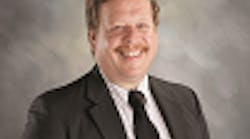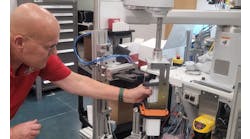Paying attention to disciplines and people we usually ignore can free them and us
Everyone knows the joke about not having to be faster than the bear—just having to be faster than the other person we're with, so the bear will get them first. Similar to most dark humor, it's hilarious because its points out an uncomfortable human characteristic, in this case, that we'll cheerfully give up companions to save ourselves—and even seek out opportunities to do it.
Truthfully, many of us are preoccupied with or even obsessively consumed with keeping up with and keeping ahead of coworkers, neighbors, friends, relatives and loved ones. It's crucial for us to keep the spotlight on ourselves and our little sphere of interests, and keep any competition in the dark or invisible. Just think for a moment about how much time and energy we likely spend on this little hobby, and how much of a millstone it can be around our necks. Ironically, keeping others down keeps us down, too.
Because I've always had to go out and find events and people to write about, I've repeatedly encountered these rivalries in every large and small, geographic or professional beat I've covered. I'm not really seeking to heroically illuminate anything. I'm just trying find some useful news and fill pages that would otherwise be blank. However, just that basic goal is mostly ignored, and sometimes lands me some surprisingly hot water. It supposedly never hurts to ask, but that's not what I've found.
Most recently, while researching this issue's "Analyzers address lost expertise" feature article, I was reminded that, even in our sophisticated, post-modern era, analyzers and sampling systems that could be hugely beneficial to many process applications are still routinely ignored and unused. This is because analyzers of all types are still viewed as too costly, difficult to implement and inaccurate, even though ongoing technical advances over the years have reduced or eliminated most of these old objections.
Heck, I believe even essential motors and related rotating media that get highlighted in discrete manufacturing seem to be mostly invisible in many process applications. Even critical power generation and distribution was an accounting function until recent digitalization began bringing it close and into the control loop.
"Analyzers are still the red-headed step child or cousin of process control and automation," says Bob Sherman, ISA Life Fellow and principal technologist, Enterprise Consultants International. "And everyone who puts them in wears a pocket protector and talks about nanometers. We're only barely socially acceptable."
It's especially stinging and disheartening to hear about how these prejudices against analyzers persist, when they continue to flow from technical disciplines and process control professionals, who themselves have been and continue to be marginalized and ignored by clueless manufacturing and business people and organizations. I and many others have long advocated for process control engineers and technical professionals to push for more recognition, so their expertise can help optimize their overall enterprises beyond their usual process applications.
It's sad to learn about process control entities excluding or dumping on a subset within their own field. However, I've learned it's not uncommon for formerly oppressed individuals or groups to finally gain some real power, and then exercise it by mistreating others less or no power. It's well known that many abused children grow up to become abusers, probably because we all practice what we've learned and what's familiar, for better or worse.
There's an applicable and famous quote in the 1902 Russian play, The Lower Depths by Maxim Gorky, who wrote, "Miserable being must find more miserable being. Then is happy." It's often cited as an influence on Eugene O'Neill's 1946 play, The Iceman Cometh. However, I must confess I first heard it from the animated Russian wolfhound character Boris during the dog pound scene in Walt Disney's 1955 movie, Lady and the Tramp.
I guess we all have to save our perceived skins, and stay ahead of that bear no matter what it costs. I just wish we could venture out of our usual spheres a bit; see ourselves more fully in the struggles of others; recognize we're all living parallel lives; widen our tribal circles a little; give each other some much-needed slack and assistance, and free ourselves at the same time.






